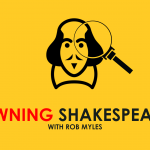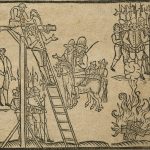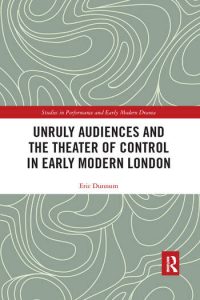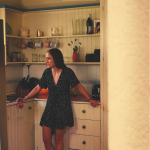Election of New BSA Trustee (and Chair of Honorary Fellowships Committee)
8th August 2022
The Board of Trustees of the British Shakespeare Association wishes to appoint a new Trustee to further the Association’s aims to educate, promote and foster a better understanding of Shakespeare and his work. We are looking for someone who will be able to join the Board and serve as the Chair of the Honorary Fellowships Committee. Applications are open to any member of the BSA, and we particularly welcome applications from disabled applicants, those from BAME backgrounds, and members of the LGBTQ+ community. Trustees work voluntarily (with reasonable expenses reimbursed) to further the aims of the BSA across its four main constituencies of members: academic researchers, teachers, theatre practitioners and members of the public.
The British Shakespeare Association is a registered Charity and its Trustees are also Directors and take joint responsibility to help the Board promote the Association’s objectives which are: to educate, promote, and foster a better understanding of Shakespeare and his works in a manner consistent with an educational charity limited by guarantee; and benefiting those individuals, members, charities, or institutions with an educational purpose toward the study of Shakespeare in the United Kingdom of Great Britain and Northern Ireland.
In line with these objectives, and with its policy for diversity, inclusivity and equal opportunities, the Board warmly welcomes applications from any member of the Association, from any part of the United Kingdom as well as from our international members so that different constituencies are represented.
Trustee profile and duties
Trustees are required to attend three meetings of the Board of Trustees per year, which are normally held via Zoom in January, May, and September, and to attend the Association’s AGM. The BSA will meet reasonable expenses for UK travel associated with attending any BSA meetings where necessary, and accepts virtual attendance via videoconferencing. In addition, some of our Trustees also sit on sub-Committees of the Board (whose business is usually conducted virtually).
The Board seeks to elect a Trustee who will also take up the role of Chair of the Honorary Fellowships Committee. The Honorary Fellowships scheme was set up by the Board of Trustees in 2011, to recognise those who have demonstrated a lifetime’s achievement of excellence in the field of Shakespeare by means of scholarship, performance, education or any other allied areas (e.g. commissioning and publishing series on Shakespeare). A third category (innovation award) was created in 2022, with the first such award expected to be made at the 2022 AGM. Honorary Fellowships is a standing item on the agenda for our Board meetings.
At the Board Meetings and the AGM the Trustee will:
- Report to the Board about nominations and awards.
- Receive nominations for the three award categories annually, collate them, and distribute to the Honorary Fellowships Committee.
- Convene their Committee (virtually) and facilitate the process of selecting three awardees based on the nominations.
- Liaise with the Chair of the BSA and Chair of Events to organise the awards ceremony (normally held after the AGM) where the awardees normally give interviews or short talks.
- Organise the purchase and engraving of presentational award for each of the awardees.
In addition, we would like the Trustee to be prepared to:
- Publicise the Honorary Fellowships scheme to their networks and online (via social media, mailing lists).
The BSA is a charitable company limited by guarantee and all Trustees share a responsibility as Directors to ensure that the BSA is managed well.
Trustees are elected by the membership for three years and may stand for re-election for a second term.
- For more information on the roles and responsibilities of a Trustee, please read the documents published by the Charity Commission here: https://www.gov.uk/government/publications/the-essential-trustee-what-you-need-to-know-cc3
- To make sure you are eligible to become a Trustee, please check the criteria on the Charity Commission website: https://www.gov.uk/government/get-involved/take-part/help-run-a-charity
What are the benefits of joining the BSA Board?
You will gain:
- opportunities for networking, mentoring and collaboration with scholars, practitioners and education professionals in Shakespeare studies
- professional development through contributing to a non-profit charitable organisation
- a wider perspective on Shakespeare and advance knowledge of Shakespeare-related events and research
- the opportunity to steer the organisation to better meet the needs of practitioners in theatre, radio, tv, film, education, and academia, and to engage members of the public with the work of Shakespeare.
Application process
If you wish to nominate yourself please submit a CV and a 300-word (max) statement that outlines your interest in the role and any relevant experience. Please submit this by email to José Pérez Díez and Maria Shmygol at the BSA’s email address by Monday 12th of September 2022.
Please contact Eleanor Rycroft (current Honorary Fellowships Committee Chair) should you require any further information about this role.
The new Trustee will be expected to take up their role from December 2022.
In the event of there being multiple applications for the post, we will invite you to amend your statement if you wish to do so in preparation for an election (by electronic means) by BSA members.











